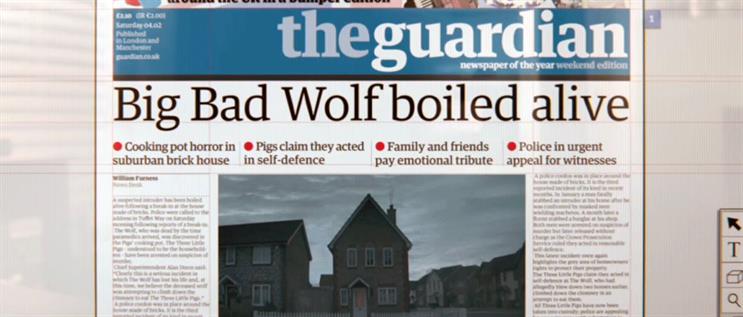In June, Ad Age ran a piece featuring an "ad trader" employed by a programmatic media agency. To quote directly, "just 23 years old, the Northwestern economics graduate uses eight software programs to buy millions of digital ads each week, plucking them from a pool of trillions without ever speaking to an actual person." At the time, he was running 33 campaigns simultaneously.
Let me make clear from the off that I have nothing against automated trading per se. In fact, programmatic buying that eliminates the bias of the human, reads data to best optimise campaigns, improves efficiency and opens up a longer tail of business, is to be welcomed.
But running 33 campaigns smacks of commodity trading. Not speaking to anyone smacks of commodity trading. And I don’t want the Guardian to be treated as a commodity. With such an approach you risk being blind to the context of the environment the Guardian offers, undervaluing the trust and relationships our audience has with our content.
Put simply, the further you are from the publisher, the less you can be aware of its influence, quality and readers.
We believe that the Guardian delivers societal influence that can be converted into commercial advantage for advertisers. We call the Guardian "a platform for action". That’s the newsbrand advertising model – highly attentive, intelligent and elusive audiences who are highly engaged with our content and the advertising that accompanies it.
I don’t want the Guardian to be treated as a commodity. With such an approach you risk being blind to the context of the environment the Guardian offers, undervaluing the trust and relationships our audience has with our content.
That advertising makes them think, feel or act differently towards brands, which delivers a return to clients.
The Panama Papers story is the latest example of our societal influence. It has forced a prime minister to resign and governments around the world to consider how their tax policies should be rewritten. We saw a record number of visits and views and helped set the global news agenda.
It was beautifully designed and crafted. The investigation required investment, but that’s what the Guardian does and has done, for 195 years. To a trading desk algorithm however, it was just another page, measured in the same way as any other page where the code can see the same audience.
So while there’s great societal value to the work, there’s no monetary value in the work when viewed through this distanced trading mechanism. And that’s my beef.
Societal influence doesn’t always have to be on this grand a scale. It can just as easily be about a film or restaurant review, an enlightening interview, an opinion piece. Regardless, the current algorithms are only able to be interested in price and a basic outcome, equating back to a cost per something.
So how can we make sure that programmatic buyers are given the best information about their buys? How can we ensure that quality inventory is formally recognised? And how can we build more transparency and trust?
What we need is a more balanced scorecard to realise the full potential for programmatic trading within our industry. We need to inject qualitative measures into the algorithm – trust, context, design. Trading that continues to ignore these measures risks making planning and buying decisions purely short term, and that will ultimately damage not build brands.
One trading desk recently told us we were one of over 4,000 "partners". Like Julio Iglesias had lovers, I assume some are more special than others. But there’s a huge difference between what’s available and what’s valuable.
Warren Buffett famously said, "price is what you pay, value is what you get". I encourage advertisers who are buying programmatically to look at the value of the inventory, rather than just the cost – this will ultimately make more of your budgets.
Ultimately automated trading can be a huge benefit for media owners, consumers and advertisers, but I would caution against treating premium platforms and their audiences like they are tin, or copper. We’re gold – scarce and highly valuable.
Nick Hewat is the commercial director at Guardian News & Media


